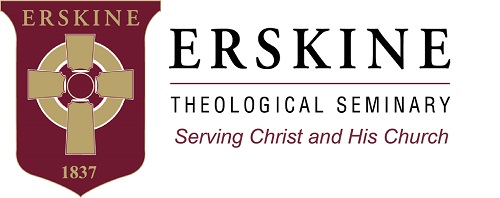The Doctor of Ministry (DMin) degree is an advanced, professionally oriented, doctoral degree that prepares students more deeply for leadership in congregations, Christian ministries, and chaplaincy contexts, including teaching in some Christian higher education settings. The DMin degree builds upon an accredited master’s degree in a ministry-related area (ordinarily the MDiv) and upon significant prior ministry experience. The integrated curriculum focuses upon the norms, functions, and contexts of leadership in Christian ministries and culminates in writing a dissertation. The degree requires 36 credit hours including the dissertation writing.
Our DMin program is flexible and able to meet the special needs of military chaplains, whose duty stations may change quickly or place them at a considerable distance from campus. Graduates of an approved professional military school may receive transfer credit. The DMin director is the primary academic advisor and may be consulted on all matters pertaining to the program. An additional faculty advisor will be appointed to guide the student through the prospectus – dissertation process.
Program Director
Crain, T. Chris
Director of the Doctor of Ministry Program
Rev. T. Chris Crain (Ph.D., Saint Louis University, M.Div., Covenant Theological Seminary) serves as Associate Professor of Historical and Pastoral Theology and is the Assistant Director of the Doctor of…
Foundational
- DR 900 Advanced Research and Writing (2 hs)
- DR 901 Theological Foundations (3 hs)
- DR 902 Ministry in Context (3 hs)
Required
- DMin Norms Course
- DMin Functions Course
- DMin Contexts Course
Electives
- Elective
- Elective
- Elective
- Elective
Dissertation
- DR 940 Candidacy (1 hr)
- DR 941 Dissertation, Stage I (3 hs)
- DR 942 Dissertation, Stage II (3 hs)
- DR 943 Dissertation, Stage III (= 0 hs)
- DR 095 Continuation of Dissertation (= 0 hs)
- Admission
Applicants must normally possess a master’s degree (of at least 72 credits) in a ministry related area (usually an MDiv) from an accredited institution with a grade point average of 3.0 or higher. Applicants must ordinarily also have completed at least three years of ministry experience following completion of the MDiv. - Graduation
Students must complete 36 semester hours of credit with a cumulative GPA of 3.0 or higher (grades of C or higher). Students must maintain a cumulative GPA of 3.0 to remain in good standing and maintain eligibility for financial aid. The program may be completed in as little as three years of part-time study. Students must normally complete the program within five years. - Transfer
Students may transfer up to 15 hours (12 CPE hours) into Erskine’s DMin program from another accredited program (only grades of B or higher). Ordinarily, students may include no more than six hours of cross-registered courses. DMin students may take ThM courses for DMin credit but may not take master’s-level courses. - Continuous Enrollment
Students in the DMin program must remain continuously enrolled and are required to register each fall, spring, and summer without interruption. Otherwise they will automatically be suspended from the program. - Dissertation
The dissertation is the culmination of the DMin program, consolidating the results of the DMin coursework. Students may choose a project-based dissertation for their own ministry setting or a concept-based dissertation that researches an issue or need in the ministry setting.
Student Learning Outcomes
In dependence upon the grace of God, Doctor of Ministry (DMin) graduates will be able to:
- Interpret the Bible at an advanced level within its canonical and historical contexts and apply the message of the Bible to contemporary life, especially through writing, preaching, and teaching, while drawing upon the Church’s theological and historical heritage. (Interpretation and Application)
- Discuss graciously evangelical Christianity and the Reformed theological tradition within the contexts of diverse ecclesiologies, contemporary cultures, and global Christianity. (Evangelical and Reformed)
- Critically evaluate contemporary issues in the Church and the world with theological acumen and pastoral sensitivity. (Theological and Pastoral Integration)
- Demonstrate love for Jesus Christ and growth in sanctification toward personal, relational, and spiritual maturity which enables graduates to reinvigorate and deepen their ministerial callings. (Sanctification)
- Demonstrate growth in their capacity for effective Christian leadership in their specific ministry settings as pastor-shepherds with advanced skill in preaching, teaching, worship leading, evangelism, pastoral care, and administration. (Christian Leadership)
- Author a project-based or concept-based dissertation that demonstrates advanced contextual and theological analysis and synthetic research competencies appropriate to an advanced professional degree. (Dissertation)

